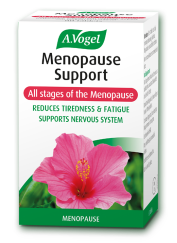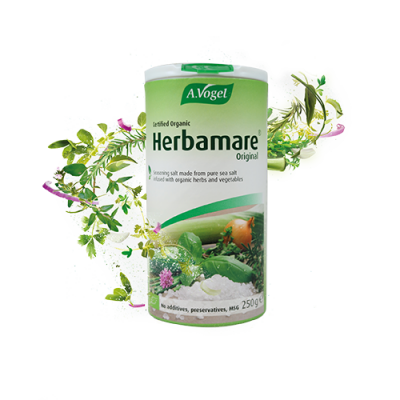Read the full video transcript below
Menopause and smell
Now this is little bit of a strange one, but it is really common in the menopause. And there's two kind of main parts to it. The main reason for this though is that your falling oestrogen is to blame. It's behind most of the things that go on here.
Changes to your sense of smell
The first thing that can happen is that you can become more aware of smells around you. Your sense of smell can become a lot more acute. Now this can mean that you start to smell things that you never noticed before. You might be walking down the street or in your back garden and suddenly, you can smell the flowers or smell other things in the air.
It can also mean that you start to dislike some smells or they become too strong for you. And it's amazing how many women actually say, "I can't stand my perfume anymore. I can't stand my body creams. I can't stand the smell of washing powder." So there can be a point where things that you used to really love and enjoy, are now making you maybe feel a bit nauseous or you just think, "Oh, that's absolutely horrible."
Changes to your own body odour
The other thing that can happen is that you can become much more aware of your own body smells, and this can be quite disconcerting because it's amazing how many women say, "I feel as if I'm smelling all day and it's really upsetting me and it's making me feel really uncomfortable because I feel that everyone else is thinking that I smell too." So that is the first thing.
Vaginal changes
The second thing that can happen is that some of our body liquids, if you like, can start to smell. So the main change is often in the vaginal area. Now, your oestrogen actually triggers the cervix to produce the mucus in the vagina, and as your oestrogen levels fall in the menopause, the production of mucus can change, and that change can either cause dryness or for some women it can actually increase the lubrication, and they get really worried because they feel they're almost like having little mini periods or they're wetting themselves quite a lot.
The other thing that can happen is that this change in vaginal mucus can change the balance of friendly bacteria in the vagina, and that can then change the smell. So with the vaginal fluids, you might find that the amount changes, you might find the colour changes, the smell changes, and the consistency changes as well. Very often, there may be a little bit of an underlying infection because in the menopause we become much more vulnerable to infections such as thrush.
So if your vaginal mucus changes quite quickly, especially if there's an odour or there's a real big change in colour, it is a good idea just to get this checked out by your doctor. But in most instances, a specific vaginal probiotic usually does the trick, and it's worth trying that to start with too.
Underarm sweat
The other main area where we sweat from is under the arms. And this is the one that very often causes us a lot of discomfort and distress because we can be sitting there, quite happily, doing our job, and then think, "Oh, I can smell myself. I can smell my sweat." Now remember, in the menopause, especially if you're getting hot flushes or night sweats, you're going to sweat more anyway, but in the menopause, certain things can happen.
One is that falling oestrogen can affect the balance of bacteria on our skin, so that can have an effect on the smells that we produce under our arms. And one of the other interesting facts is that the menopause can stress the liver. The menopause can also slow down our digestive system, so our bowels can become a little bit sluggish or we can end up with constipation. And when these things happen, the body has to find other ways of getting rid of toxins, and one of the places happens to be under the arms.
So if you're detoxing a bit more under the arms, you are giving those bacteria there an extra feed or two during the day. And that's the reason why even if you're using antiperspirants or deodorants, you can start to smell a bit more, a bit quicker, in the day.
What you can do to reduce under arm odour
So, what do you do in this particular instance? If you're getting a bit more smelly under the arms and you haven't changed your deodorant or your antiperspirant, if you're getting bloating, digestive discomfort or even a bit of constipation, you might find that taking something like Milk Thistle Complex for a month or two can make a difference, because by supporting your liver, you can help with detoxification and elimination, and it can make things a bit easier in that way as well.
The important thing here is not to keep washing yourself three or four times a day because that can seriously disrupt the balance of friendly bacteria under the arms, but you might find that you need to use a slightly stronger deodorant.
The problem with antiperspirants
Now, the really important thing here is, the underarms are one of the primary areas where our body sweats in order to maintain our body temperature. So if we're going through the menopause and we're getting hot flushes and sweats and you use antiperspirants, you are stopping that area, underarms, from doing the job it's supposed to do, and that can lead to problems elsewhere.
And it's quite interesting, in that if you seriously block the underarms, you can end up with smelly feet. So there is a link between the two. So using a nice natural deodorant can very often make a huge amount of difference because you are allowing the underarms to breathe, to sweat properly, and that in turn can very often help to control the level of bacteria under your arms that tend to cause all the different smells.
Natural deodorants I recommend... |
Smelly feet
Now, the other thing that can happen here is that, as I mentioned before, sometimes you can just get smelly feet on their own. You might not necessarily have any problems with your underarms.
So it's important to allow your feet to breathe, and I have talked about this before. It's important to try and go barefoot at some point during the day, if you can. If you are sweating a lot with your feet, especially if they are smelling a little bit, then again, try the Milk Thistle Complex. Also make sure that you're not wearing nylon socks or man-made fibers because they will stop your feet from sweating as well.
Vaginal Freshness
Oh, and one thing which I forgot. For vaginal freshness, remember to always wear cotton underwear. And again, don't wash yourself too often. We get ladies who are literally washing themselves every time they've been to the toilet. This will really disrupt the friendly bacteria in the vaginal area. So it's important not to go overboard here.
And I really would not recommend any of the vaginal deodorants that you can get. A lot of them have chemicals in them which might actually make things a lot worse.
Remember, changes in smell are really common
So, just to remind you, the change in sense of smell is really common. You being able to smell your own body functions more, is common. And very often, you might be the only one to smell this. So if you start to find that you're getting a bit paranoid about smelling, maybe ask your nearest and dearest if they can smell you too, and very often, they'll say "No," and in which case you know that it's just your nose being that little bit more sensitive.
And remember too, as I mentioned before, that sweating is a natural body process and we do need to do it to keep our temperature in balance, which is more than important during the menopause and also to help with detoxification too.
So I hope you find this an interesting one. I mean, I must admit it's one of my most favorite ones. And I will look forward to seeing you next week on A.Vogel Talks Menopause.










